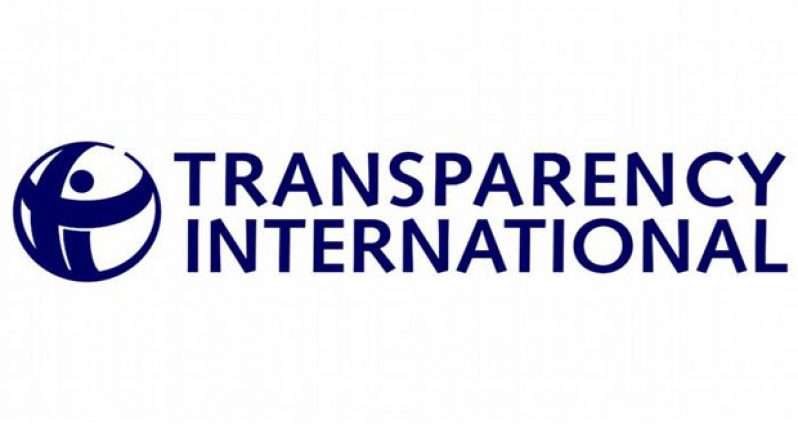TRANSPARENCY International (TI) yesterday released its annual Corruption Perception Index (CPI), in which Guyana is ranked at 124, with a rating of 30.And its local Chapter, Transparency Institute Guyana Inc. (TIGI), has resurfaced and used the occasion to call on the Government to make certain moves.
These include: The appointment of members of the Integrity Commission; the appointment of members of the decade awaited Public Procurement Commission; implementation of modern anti-corruption legislation; and implementation of whistle blowing legislation, among others.
However, even as Transparency International continues to produce its annual reports, it is also facing an uphill battle in the international community.
BATTLING CRITICISMS
In recent times one of the harsher criticisms of the body has come from the World Bank itself, which is cited as one of Transparency International’s sources.
The World Bank, last year, criticised the Index as a method of ranking corruption, saying “changes in sample base and methodology have complicated year-to-year comparisons” while “survey respondents in different countries describe corruption in different terms”.
The World Bank report goes on to state that the methodology used by the CPI is also flawed. “There are two main problems: (1) Previous survey results have an impact on new survey results and (2) because indexes combine several measurements, it is difficult to set one number that accurately reflects a country’s level of corruption.”
The report also noted that a cyclic system easily develops where reports are based on a previous year’s report and actual efforts implemented to fight corruption are ignored.
Obviously wrong data taken from another source was also highlighted when the last report was released. This was seen in one of the data sets used from the World Economic Forum, which stated that Guyana has a better railway system than Serbia, a country with over 4000 km of railway lines – an incorrect piece of information that has been replicated in reports in prior years.
The disputed Transparency International index was also the subject of a debate, which occurred as far back as 2007, between the a TI representative and the Tax Justice Network (TJN), in which the latter accused Transparency International of taking a selective view of corruption.
The complete debate was published by a Switzerland newspaper, the Alliance Sud News, in which TJN states clearly that the contention that the Corruption Index prepared by Transparency International is taken as a measure of a country’s level of corruption is wrong. The Network was emphatic in its assertion that the Index focuses almost exclusively on bribery and overlooks other corrupt practices, including tax evasion and illegal capital flight.
A year later, England’s daily, the Guardian, published an article that stated that the credibility of Transparency International, a global “non-partisan” organisation which “promotes transparency in elections, in public administration, in procurement and in business”, is on the line.The article was headlined ‘Seeing through Transparency International’.
While there have been attempts at justifying the work of Transparency International the consensus, for the large party, is that it still has not managed to effectively respond to the criticisms laid at its door.
TRANSPARENT MODALITIES
When the last report was released, there was a call for Transparency International to put in place transparent modalities in the way they conduct their business in Guyana.
“The credibility and integrity of the report on Guyana will continue to be held suspect by a wide cross section of the Guyanese people, unless Transparency International puts in place new and transparent modalities in the way they conduct their business in Guyana,” said Parliamentarian, Mr. Dharamkumar Seeraj.
According to him, the body’s reliance on information from organisations and individuals which have known hostility will no doubt colour what is factual.
“Under such circumstances, it is not illogical to assume that subjective and partisan influences can be brought to bear on the information and data-gathering processes, which in turn can introduce biases into the report,” he said.
On that note, he stressed that Transparency International needs to review its sources and make public its methodology and sampling techniques in gathering the data used to arrive at the rating.
“Adequate consideration was not taken by those responsible for providing information on Guyana as it relates to several initiatives taken by the current Administration, at both the legislative and administrative levels, to improve accountability and transparency in Guyana,” Seeraj declared.
Last year, Guyana ranked 27, one place up from the 28th spot in 2012. This year’s index includes 175 countries and territories.
In the face of widespread criticisms… Transparency International releases 2014 report
SHARE THIS ARTICLE :
Facebook
Twitter
WhatsApp




.png)









